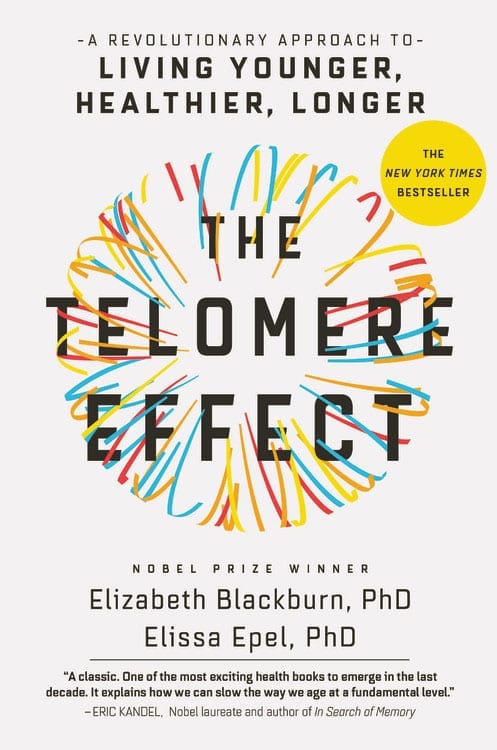There are only two certainties in life — death and taxes,” Benjamin Franklin famously wrote, and his words still ring true today. The aging process may be a fact of life, but we have all met that one person who seems magically younger and boldly proclaims that “age is just a number.”
Discovering that elusive secret to youth, health and long life is arguably modern science’s biggest challenge. While we now know that certain lifestyle choices definitely have influence, there are other scientific factors that play a part too. Case in point: telomeres. These compounds, found at the end of each chromosome, are one of the keys to unlocking the answer to why we age.
A quick high school biology refresher: Chromosomes are found in the nucleus of every cell throughout the body and carry genetic information. Each cell contains 23 pairs of chromosomes, and they determine every part of our genetic makeup. Telomeres — from the Greek telos (end) and meros (part) — guard the end of each chromosome. The easiest way to understand the concept is via the analogy of the shoelace: Telomeres protect the ends of our chromosomes by forming a cap, much like the plastic tip protects a shoelace.
Throughout life, our cells continuously replenish by copying themselves, and over time this process causes the telomeres to become shorter. At their shortest length, they stop protecting the chromosome properly, which causes the cells to age and function less effectively.
When thinking about the aging process, your telomere length is a good indicator of your biological age as opposed to your chronological one. In fact, research suggests that there is a direct link between short telomeres and cellular aging. As cellular aging is the basis of all degeneration and disease, shortened telomeres link directly to aging processes. An easy visual for understanding this is our skin, the largest organ in our body. Babies are born with plump, soft and bright skin but as we age and cell turnover slows, the skin gradually loses these healthy properties.
While the impact of telomeres was first discovered by biologist Elizabeth Blackburn’s Nobel Prize winning research at the end of the 1970s, newer studies have expanded on the research further. For instance, a recent study of centenarians (people over 100) clarifies the role of telomeres in aging. “We found out that some of the centenarians had very similar telomere length to the 70-80 years old cohort, but a smaller subset was very similar to younger people, those aged 40-50 years old,” says Jerry Shay, Ph.D., professor at UT Southwestern Medical Center.
As cellular aging is the basis of all degeneration and disease, shortened telomeres link directly to aging processes.
“I think, and a lot of people believe, that inflammatory responses are a major component of aging,” says Shay. “They can change the cell and cause your skin to change, causing wrinkles, etc. And when it comes to skin aging, there’s no question that if you’re exposed to sun damage, the telomeres of your skin are going to be shorter because the cells in your skin have turned over more times.”
Considering the development in telomere science and the huge growth in at-home genetic testing across the board (the market is forecast to reach a value of $928.80 million by 2023 and now offers everything from ancestry information to fitness regime optimization), it is no surprise that there are now services for analyzing telomere length.
Companies like Telome, Repeat Diagnostics (test starts at $400) and Spectracell ($200 per test) are licensed to measure people’s telomeres and let them know how their biological age stands in relation to their chronological age. The most robust and respected testing option is offered by the Madrid-based Life Length. The test identifies via telomere length how you are aging in comparison to others they have tested from their database of tens of thousands of people.
While tests like these raise questions about how much we want to know about our future health and length of life, Stephen Matlin, CEO of Life Length, points out that regular testing can be useful for those interested in tracking their biological age. “Instead of comparing yourself to others on a one-time basis, it’s more productive to use this test as a monitoring tool. You can then establish what is conceptually your biological age and overtime periodically re-measure it. From this, you can see how your personal lifestyle is influencing that rate and have the opportunity to make lifestyle changes and see if they have a beneficial impact.”
Although the link between telomere length and aging is established, the science behind how we can prevent telomere shortening is less set in stone. As Shay highlights, our unchangeable genetics play a big part in our telomere length. “It’s roughly 50/50 when it comes to genetics and lifestyle. If your parents live to 100, there’s a good chance you make it to at least 90,” he says.
Despite knowing lifestyle and environment make up roughly the other 50 percent, research around determining those specifics is less conclusive. Of course, abiding by a healthy lifestyle is a good first step. “Don’t smoke, get exercise, eat well. If you follow those simple rules, the odds are you won’t be messing up what your predisposed longevity is going to be about,” Shay says. “Lifestyle factors are very difficult to assess. However, the collective impact of your diet, exercise, stress, etc. will influence your rate of aging, and this is expressed by your telomeres,” Matlin adds.

The link between lifestyle and telomere length has been researched in detail by leading health psychologist, Elissa Epel, Ph.D., in her 2017 book “The Telomere Effect,” co-authored with Elizabeth Blackburn. The research presented in the book looks at lifestyle factors (smoking, stress, being sedentary, eating processed food) and how they impact telomere length.
Epel says her most recent research focuses solely on the mind-body connection and the role stress plays in impacting telomere length. The research assessed 19 different studies that have examined telomere biology in relation to meditation and concluded that meditation training can improve telomere maintenance. As “telomere regulation is dynamic and involves complex temporal features that are not yet fully understood,” Epel says, further research is still needed to discover why. But this growing area of research certainly helps place another piece in this extremely complex puzzle.
Of course, the holy grail of aging has yet to be found, and there is much more to discover in this area of science. However, it is worth taking into account that making positive healthy lifestyle changes will benefit you in the short and long term regardless. After all, no one ever came to any harm by eating healthier, moving more or stressing less.
Additional reporting by Mellanie Perez.
We only recommend products we have independently researched, tested, and loved. If you purchase a product found through our links, Sunday Edit may earn an affiliate commission.







